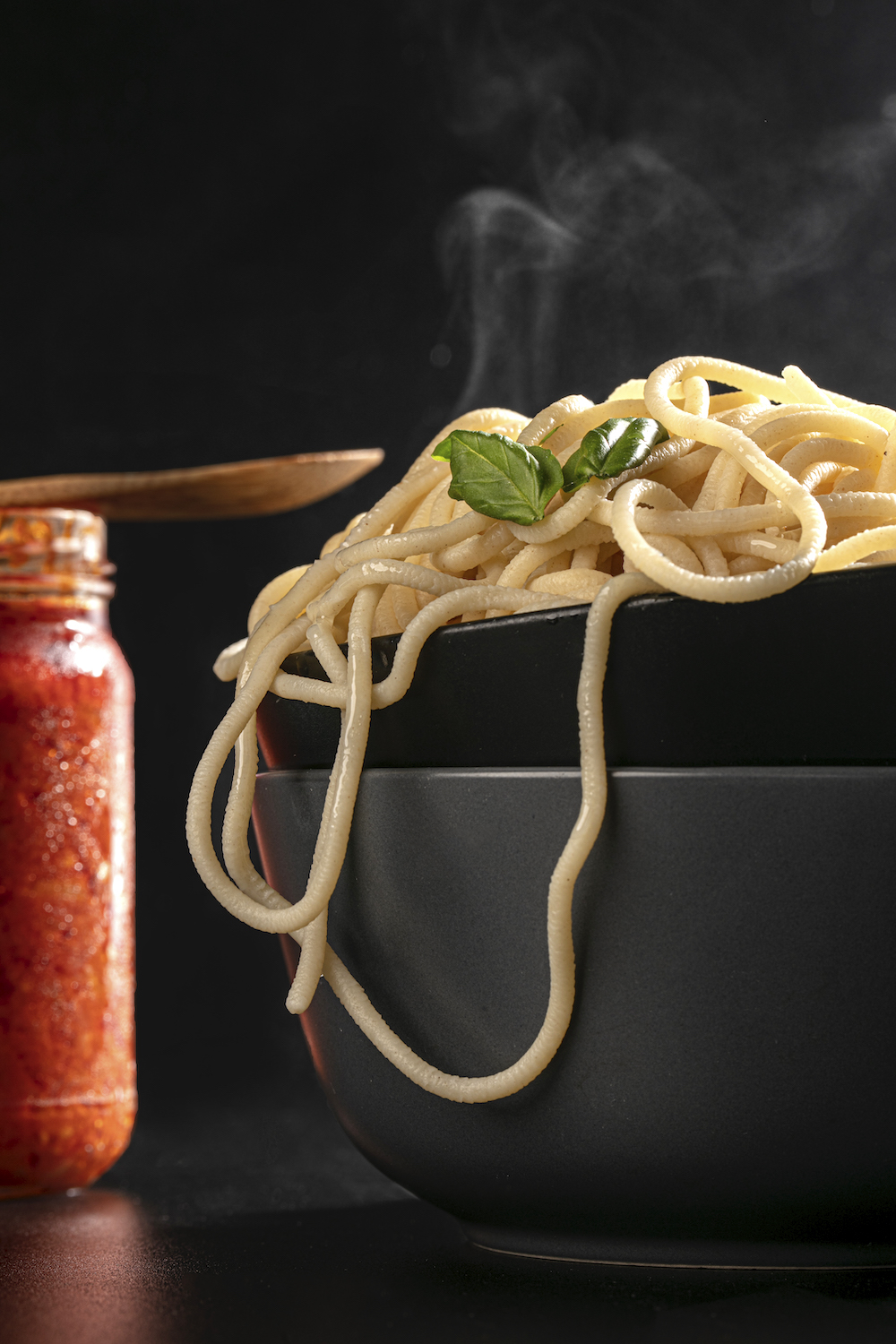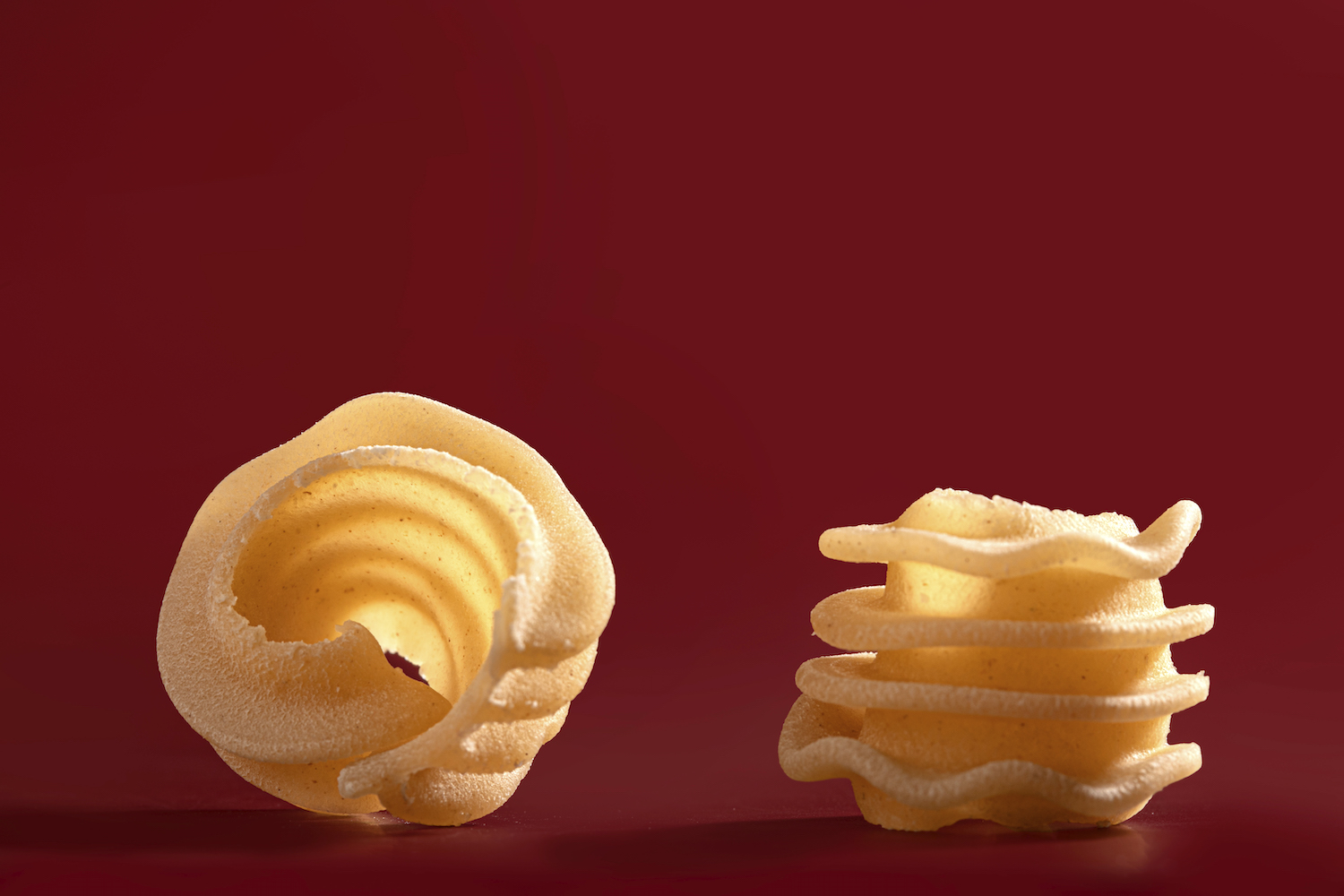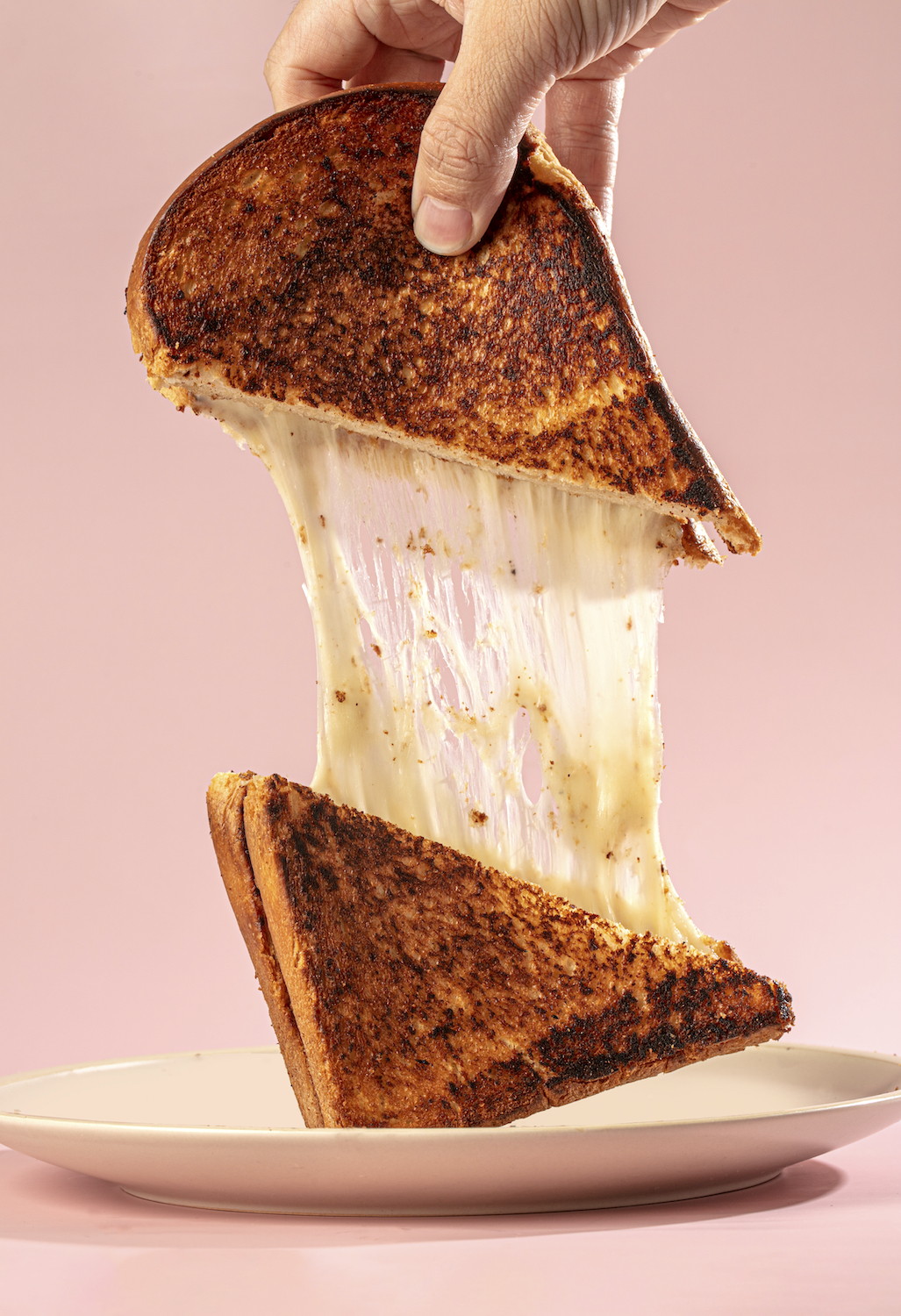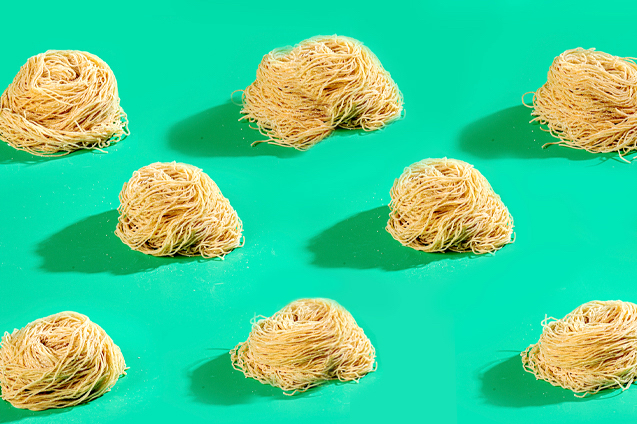Thirty-year-old Aldrin Lim of Conspire Foods has big dreams for his boutique food manufacturing firm.
He looks up to industry greats such as Betty Ang of Monde Nissin and how she grew her company to become one of the largest food manufacturers in the Philippines.
Currently, Conspire Foods produces various breads such as sourdough and brioche, fresh pastas, noodles, snacks such as tuile wafer cookies, and soon enough, cheese curls. Lim believes there are two major points to grow his business: by investing in machinery and then being picky with clients he works with.
Baking background
Lim started out as a baker back in 2013. “My family is not in the food business, so all of this was like a ‘suntok sa buwan’ kind of thing. This was just something I really enjoyed doing,” he says.
“When I was starting out, I didn’t have any clients. What I would do was bake bread and I would go door to door and peddle it around my village.”


Lim was referred by some friends to his first few clients: Mamou and Las Flores. But he didn’t stop there. “Eventually, I gained more clients and started supplying buns for Sweet Ecstasy. It was all luck. I just messaged them online. I didn’t know the owners at the time but now we’re really good partners.”
Initially, Conspire Foods started out as Conspire Bakery since they sold only bread. When the pandemic hit in 2020, Lim knew he had to pivot.
“I don’t like changing but of course I knew I had to. My business model was B2B initially. During the pandemic, the number of wholesale clients declined (either because they had to temporarily close or shift their business) and some stopped altogether,” he says.
Manually, Conspire Foods could only produce 20 containers a day. Now with the machines, they can do 150 to 200 containers a day. Some of these machines range from a couple of hundred thousand to a couple million pesos.
“If I didn’t think of ways to change, I would have to let go of some staff, which I really didn’t want to do,” Lim says.
“So we started doing retail and since I really like noodles and fresh pasta, I bought machines that produced noodles and fresh pasta. Eventually we got to make more products.”
With the purchase of machines, Conspire Foods was able to tackle larger volumes of orders. “The way to grow is by buying machines. For example, our pasta machine is the first machine that I invested in. When I say machine, I mean a machine that produces a certain product. I have ovens but there is still a manual factor involved wherein people still have to make the dough. With our pasta machine, you put in the ingredients and it will extrude out the pasta.”
Automation as a driving force
Manually, Conspire Foods could only produce 20 containers a day. Now with the machines, they can do 150 to 200 containers a day. Some of these machines range from a couple of hundred thousand to a couple million pesos.
“The machines are not cheap. So if you’re not going to be committed to operating a business, then it won’t be worth it.”

Although the sound of automation may feel like a step back from artisanal goods that have grown in popularity in the last decade, Lim insists that the machines are there only to help and that the human touch is still present.
“There are many variables involved that need a human to decide. If you don’t take care of it, even by visually looking at the product it produces, it will produce variances in goods.”
“I hold a very small list of wholesale clients because I’m quite picky. My commissary is pretty small and I want to make sure we can service all our clients,” Aldrin Lim admits.
He explains that his tuile wafer machine that makes waffle cookies has a batter extruder. You must set the timing and temperature just right to get the perfect waffle cookie. With their pasta machine, you also need to pay attention to timing how it cuts the pasta. “If you don’t time it properly, you’ll end up with crap basically,” he says.
The need to be choosy
With a lean team of just 10 people, Conspire Foods tries to be choosy on who they take on as a client. “I hold a very small list of wholesale clients because I’m quite picky. My commissary is pretty small and I want to make sure we can service all our clients,” he admits.
“I like it that way. What happens to others is that they overcommit to a lot of clients and the quality of products or service deteriorates.”
Being able to coordinate with every client is also important especially during this pandemic. “Always consistently talk with your clients,” Lim advises.


With the constantly changing alert levels in the country, you need to be able to make reasonable suggestions to clients. “We also help out in balancing their orders. We can suggest to them if they should order more of this rather than that or even advise them to underorder because of the current situation. That’s really helpful for restaurateurs.”
So how does Lim choose his clients?
“We like scalability. If I think that a company has the potential to grow, then I would like to grow with them. Another is consistency. We really rely on companies who have consistent orders. One more is the financials. I verify clients on how well they pay. That’s very important because many suppliers have a problem with collection. So we’re quite careful.”
Just as he started going door-to-door to offer his bread, his advice to startups is similar: “What people should be doing more if they want to market their product is just go for it. Just ask. You won’t lose anything if you do. Laway lang ’yan. If they say no, it’s fine. Just move on to the next.”





